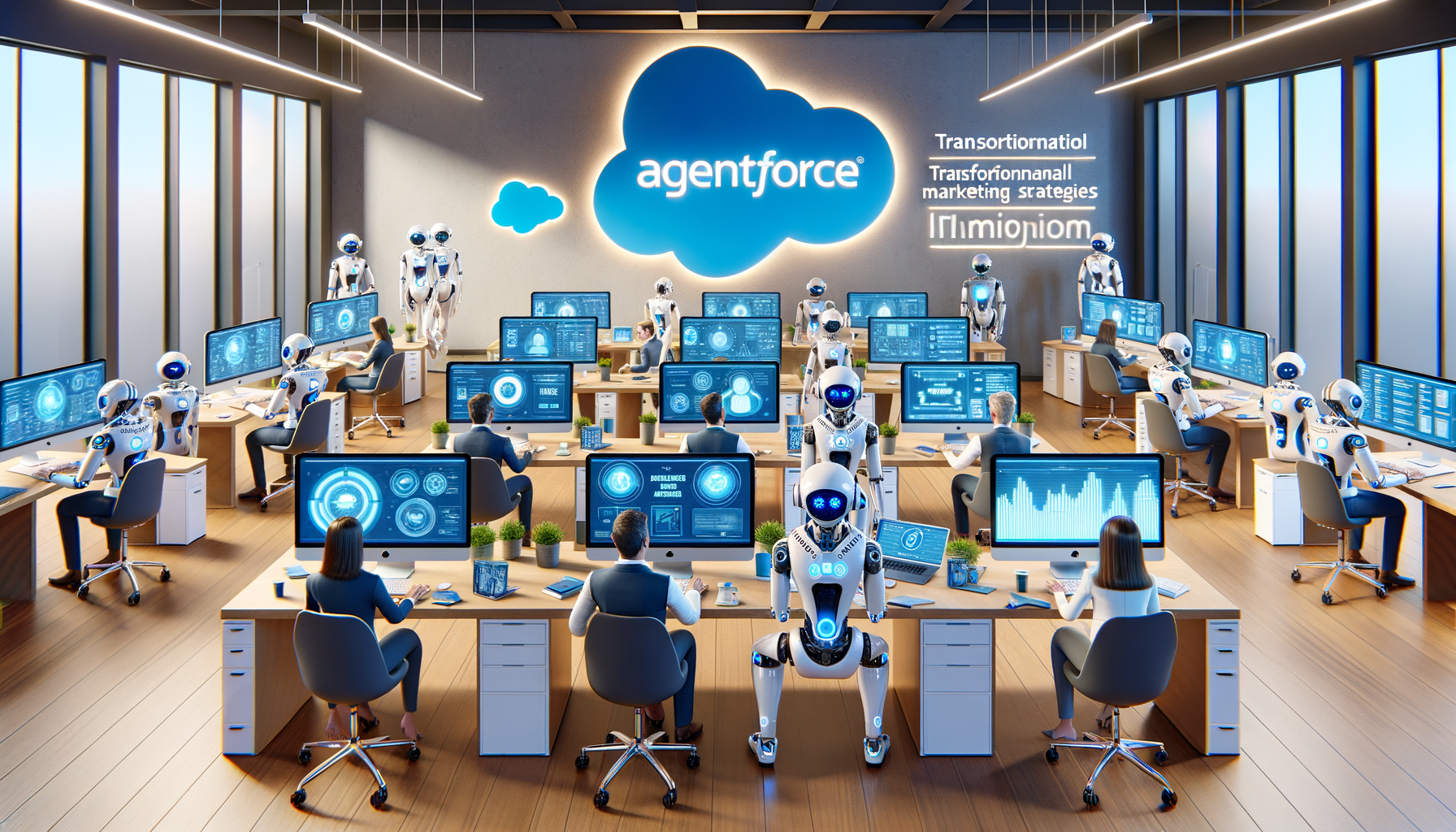Introduction: The Role of AI in Marketing
AI technology is revolutionizing the marketing landscape, providing unprecedented opportunities for brands to automate processes, enhance customer engagement, and make data-driven decisions. Salesforce’s Agentforce emerging suite of AI agents exemplifies how businesses can leverage autonomy and integration to supercharge their marketing efforts.
Key Insights
Here are critical insights from the Salesforce Agentforce framework and actionable steps for marketing professionals:
- Autonomy: AI agents execute tasks independently by analyzing data and making informed decisions. Consider deploying AI agents that can handle routine marketing tasks, freeing up your team’s time for more strategic initiatives.
- Customization: With no-code tools like prompts and flows, marketers can easily tailor AI agents for specific roles, such as customer engagement or campaign management. Utilize low-code capabilities to modify existing templates or create new workflows that align AI with your business objectives.
- Integration: Seamlessly integrate agents within the Salesforce ecosystem using existing tools like MuleSoft and Salesforce Flow. Ensuring that agents interact with all your marketing data is crucial for maximizing their effectiveness.
- Data Handling: AI agents benefit from real-time access to multi-source data, increasing their efficacy. Tap into your Data Cloud to provide agents the best information available for swift, accurate decision-making.
- Natural Language Processing (NLP): Leverage NLP capabilities to ensure agents can engage customers in human-like conversations across different languages, enhancing user experience and satisfaction.
How AI Agents Work
The effectiveness of Agentforce agents stems from their sophisticated underlying technology:
- Atlas Reasoning Engine: This engine emulates human thinking, evaluating queries and forming refined plans of action. Ensure your marketing strategies leverage this technology to anticipate consumer queries and provide them with accurate information rapidly.
- Guardrails: Agents operate within defined limits, ensuring responsible usage. Establish parameters to determine how your agents communicate with customers, and design them to escalate complex queries to human agents as needed.
- Channels: Agents can efficiently work through various platforms, including websites and CRM systems. Employ these channels for harmonized customer interactions, ensuring consistency across your messaging.
Implementation: Practical Steps to Apply AI
Adopting Agentforce AI agents involves several practical steps:
- Evaluate Your Needs: Identify pain points in your current marketing processes that AI agents could address. Consider tasks that could be automated, such as social media management or lead qualification.
- Integrate with Your CRM: Ensure Salesforce’s Data Cloud and other raw data sources are well-integrated so your AI agents can retrieve necessary information efficiently.
- Customize Models: Use pre-built templates available in Agentforce, tweaking them to match specific marketing activities. Experiment with different models tailored to customer communications or campaign analytics.
- Monitor Performance: Once deployed, consistently track the performance of your AI agents against your business goals. Analyze metrics related to customer engagement and lead conversion to assess their impact.
- Iterate and Improve: Based on performance data, refine your AI agents regularly. Staying adaptive is vital in the rapidly changing marketing landscape.
Conclusion
The integration of AI agents through Salesforce’s Agentforce represents a significant step toward innovation in marketing. By automating time-consuming tasks and providing insightful data analysis, these agents can elevate both employee productivity and overall customer satisfaction. Marketing professionals are urged to embrace AI technologies and redefine their strategies to stay ahead in an increasingly digital world.

